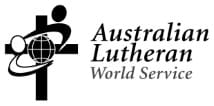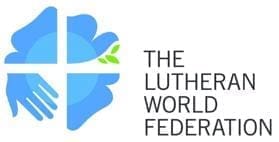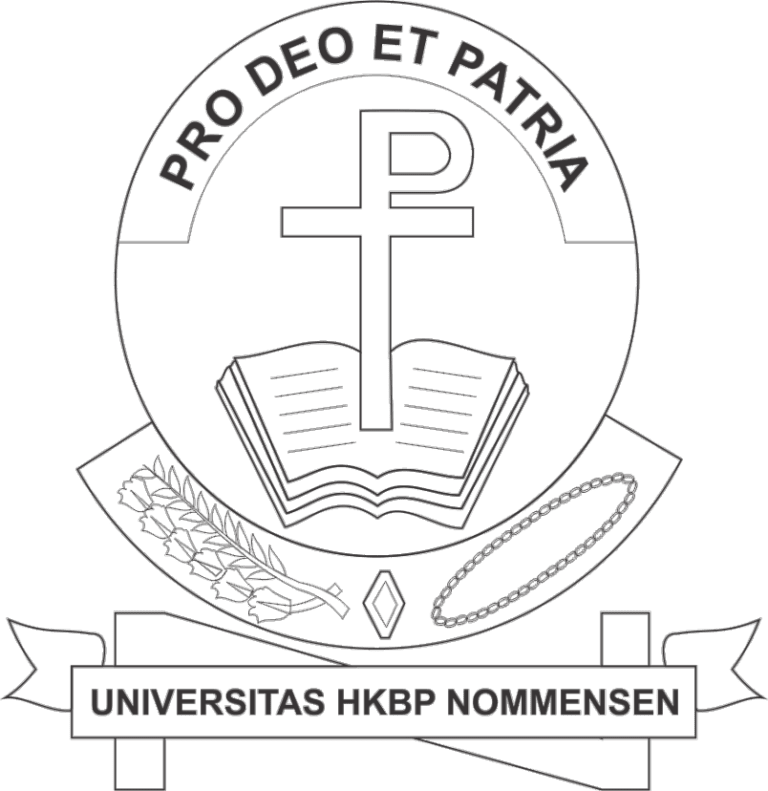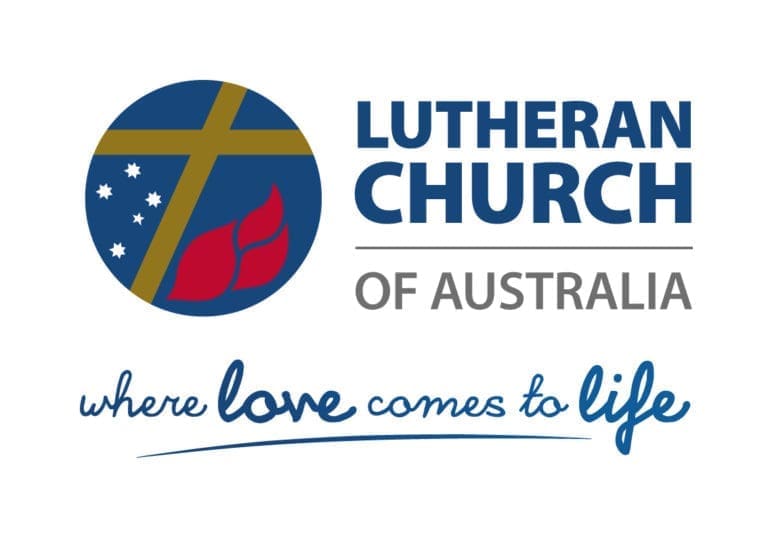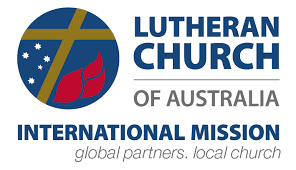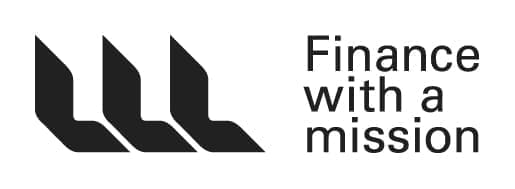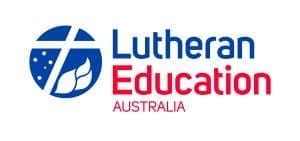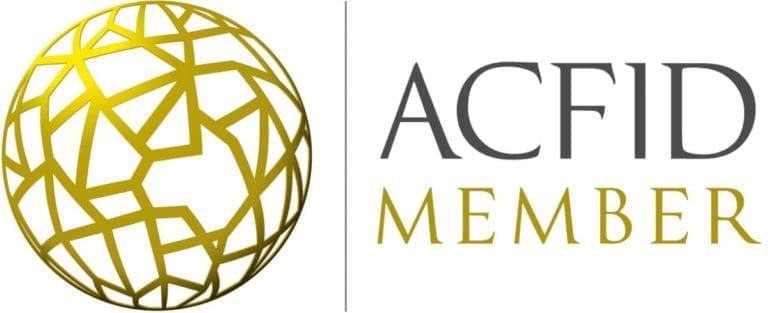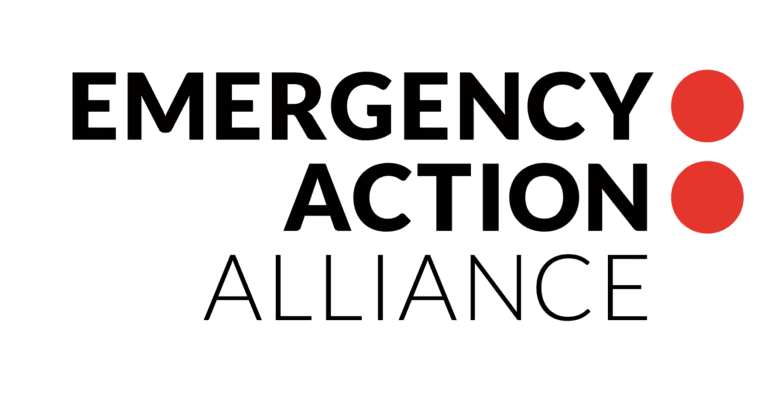ALWS is the overseas aid and development agency of the Lutheran Church of Australia and New Zealand. The ALWS Constitution is approved by the ALWS Board, adopted by the LCANZ’s General Church Board, and endorsed by the General Synod of the LCANZ.
Who We Are
ALWS is an agency of the Lutheran Church of Australia and New Zealand.
It’s our privilege to invite the Lutheran family in Australia and New Zealand to reach out to people hurt by poverty, injustice and crisis.
We then work together to support those who are hurt, as they build a better life for themselves and their families.
Vision & Mission

Mandate
We love because God first loved us. Jesus said, “For I was hungry, and you gave me something to eat; I was thirsty, and you gave me something to drink; I was a stranger, and you invited me in; naked, and you clothed me; I was sick, and you visited me; I was in prison, and you came to me… Truly I say to you, to the extent that you did it to one of these brothers or sisters of mine, even the least of them, you did it to me.” (Matthew 25:35-36,40).
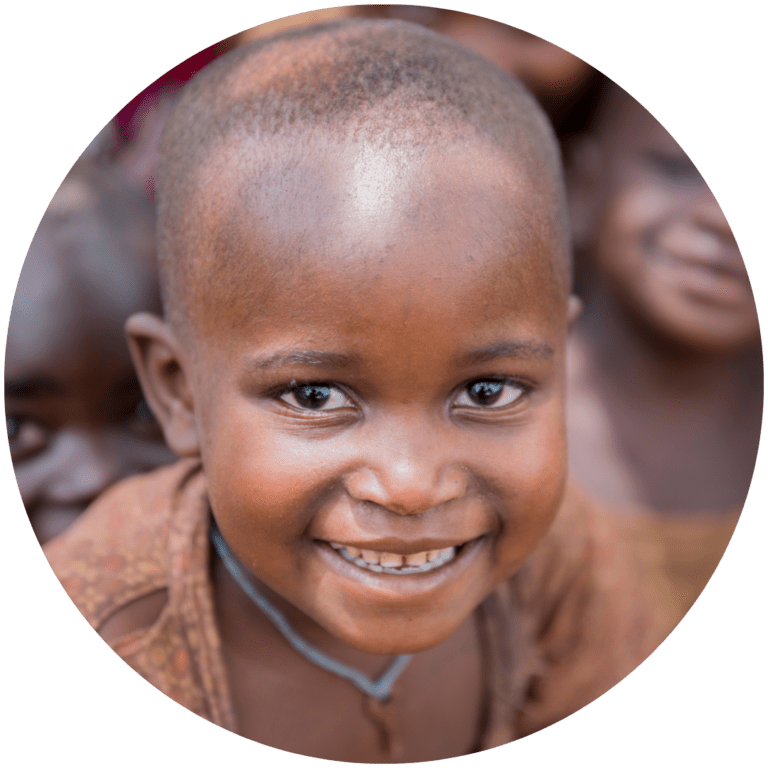
Vision
ALWS envisages a world where love comes to life (see 1 John 4:9-12); a world where all people live in just societies, where we are all empowered to achieve our full potential, uphold our rights and the rights of others for a life with peace and dignity; and where we are all inspired to remember, welcome and support those who suffer from poverty and injustice (see Galatians 2:10 and Leviticus 25:35).
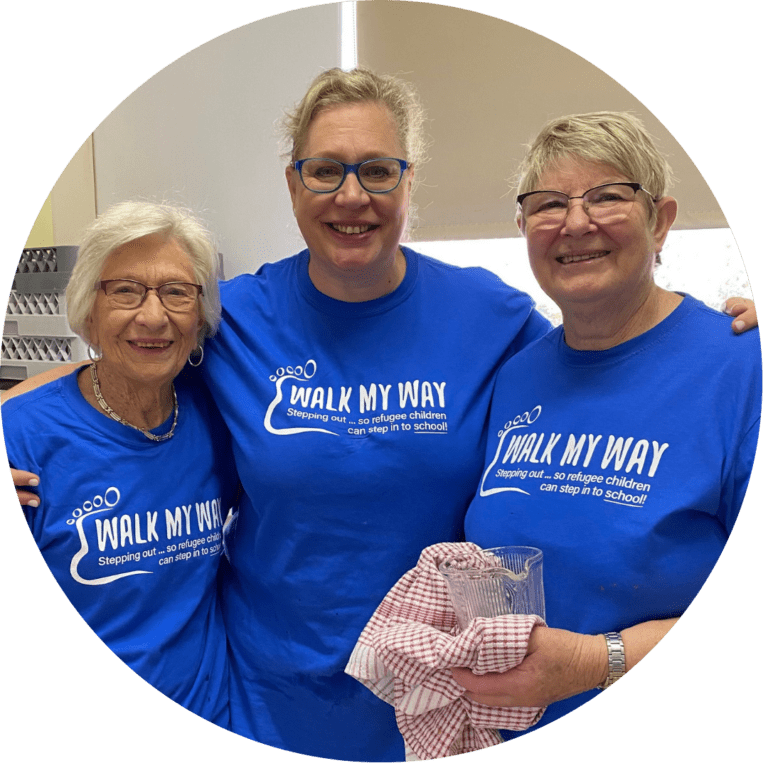
Mission
ALWS reaches out in love, for justice. We bring together people willing to work in service to help end suffering. As partners, we work openly and accountably, supporting programs which welcome, respect and bring hope through care to those fleeing from, or hurt by, disaster, conflict, poverty or oppression. We add our voice to the voices of those unheard and excluded, together crying out for justice so that we can all live in just and sustainable communities.
Strategic Plan
Each of the following principles is important to the work of ALWS. Collectively they shape and determine the work of the organisation.
Mandate
We love because God first loved us.
Jesus said, “For I was hungry, and you gave me something to eat; I was thirsty, and you gave me something to drink; I was a stranger, and you invited me in; naked, and you clothed me; I was sick, and you visited me; I was in prison, and you came to me… Truly I say to you, to the extent that you did it to one of these brothers or sisters of mine, even the least of them, you did it to me.” (Matthew 25:35-36,40).
Vision
ALWS envisages a world where love comes to life (see 1 John 4:9-12); a world where all people live in just societies, where we are all empowered to achieve our full potential, uphold our rights and the rights of others for a life with peace and dignity; and where we are all inspired to remember, welcome and support those who suffer from poverty and injustice (see Galatians 2:10 and Leviticus 25:35).
Mission
ALWS reaches out in love, for justice.
We bring together people willing to work in service to help end suffering.
As partners, we work openly and accountably, supporting programs which welcome, respect and bring hope through care to those fleeing from, or hurt by, disaster, conflict, poverty or oppression.
We add our voice to the voices of those unheard and excluded, together crying out for justice so that we can all live in just and sustainable communities.
Guiding Principles
Each of the following principles is important to the work of ALWS. Collectively they shape and determine the work of the organisation.
— we serve with unconditional love
— we work in partnership
— we support the inclusion of all people
— we make good use of God’s gifts
— we work for the empowerment of others
— we are accountable
— we respect and uphold people’s dignity
— we value the people who work with us
— we work for justice
— we value reflection
— we care for God’s creation
Approach
Don’t forget those who are suffering
but imagine that you are there with them.
Hebrews 13: 2-3
Drawing on this scriptural reference and considering the alarming rise in inequality in our world, this strategic period we will focus on supporting those who are on the move and affected by disaster in the Asia-Pacific and Sub-Saharan Africa. Within these groups, we will intentionally seek out those most at risk of abuse, exclusion and inequality and those who experience disadvantage due to gender or disability.
In this plan we refer to people who may be marginalised, disenfranchised, excluded and abused as ‘those at risk of being forgotten’ as well as speaking of the ‘most vulnerable’. We will deliberately invest in partnerships and collaborations that seek to reach these groups. We will inspire and equip people to support work which is rights-based, sustainable, and integrated.
ALWS tracks and measures its contribution to this critical global effort through Board agreed organisational-based outcomes. We track our performance towards each of these outcomes by measuring certain indicators of success, outlined in our Operational Plan.
Goals
GOAL 1
Life-changing action led by those we serve
GOAL 2
Australians inspired to joy-filled action
GOAL 3
Resources maximised for those who need it most
Our History
Our Origins - 15 June 1947
The origin of ALWS can be traced back to 1947 when the local pastor at Albury, New South Wales, Pastor Bruno Muetzelfeldt, commenced a ministry to European migrants and refugees who were being resettled through the Bonegilla Migrant Centre, a short distance from Albury.
The early days - 1950s
Acknowledging the need to assist these people settle in Australia, the Lutheran World Federation establishes a Lutheran World Service Australia (LWS-A) office at Bonegilla with Pastor Muetzelfeldt as its first representative.
In 1951, the LWS-A office assists in resettling displaced European refugees. 300 families are reunited. Bilingual pastors act as ship chaplains on the voyage to Australia, while loans help grow migrant churches.
By 1955, LWS-A has assisted in the resettlement of 2,350 refugees.
Reaching out - 1960s
A Secondary Purpose Revolving Loan Fund to help families resettle is established.
In 1966, the Lutheran Church in Australia (LCA) unifies. The head of LWS-A, Sidney Bartsch, directs the LCA’s attention to relief, rehabilitation and development programs around the world, and encourages Australian Lutherans to contribute.
A year later, LWS-A joins the Australian Council for Overseas Aid (ACOA, now ACFID) and Austcare, and participates in the Refugee Council of Australia.
Changing times - 1970s
The Australian Government decides to close Bonegilla. Dean Street, Albury is chosen as the site for LWS-A’s office, with a focus on global aid ad especially on refugees.
In 1974, LWS-A receives funds from Australian Development Assistance Bureau (ADAB, then AusAID, now DFAT) for the first time.
In 1978, LWS-A establishes a Resettlement Loan Fund to help refugees from Asia.
(By 2003, 1,983 families have received loans of more than $1,260,000).
Working together - 1980s & 1990s
In 1985, LWS-A becomes Australian Lutheran World Service. Then, in 1991, ALWS becomes an agency of the Lutheran Church of Australia.
In 1995, ALWS also joins ACT (Action by Churches Together – churches of many denominations worldwide working together).
A time of growth - 2000s
The New Executive Secretary, Peter Schirmer, works on developing closer relationships with the Board for Mission (now LCA International Mission) and Lutheran Education Australia.
In 2004, ALWS begins supporting projects in PNG.
Following the Boxing Day Tsunami in the same year, work begins in Indonesia supporting the HKBP’s (Indonesians’ largest Lutheran Church) response. By 2007, the work in Indonesia has expanded with the Lutheran Laypeople’s League fully funding the program.
In 2009, Burundi is taken on as a new country program.
More help than ever before - 2017
The ALWS family, with Australian Government support, gives $8.6 million – the most help in ALWS history!
70 years of your kindness - 2020
In 2020, we celebrate together 70 years of service to people in need through ALWS.
And in the same way our Lutheran family walked alongside people at Bonegilla those 70 years ago, today you continue to ‘welcome the stranger’ in refugee camps, and walk side by side with people in need.
The most ever people helped - 2021
In 2021, gifts from our Aussie and Kiwi supporters plus generous support from the Australian Government means 547,461 people were helped directly, with tens of thousands more benefitting. Thank you!
Who We Work With
Why Trust ALWS?
Code Compliant
We are a member of the Australian Council for International Development (ACFID) and a compliant signatory to ACFID’s Code of Conduct.
The Code requires members to meet high standards of corporate governance, public accountability, and financial management.
As part of our commitment to high standards, we ascribe to the ACFID Fundraising Charter.
This Charter ensures that we are meeting the key commitments of being truthful in our communications, we collect and use information ethically, we are accountable to our stakeholders and we source our resources ethically.
More information about the ACFID Code of Conduct can be obtained from ACFID.
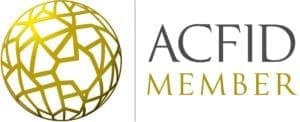

Government Accredited
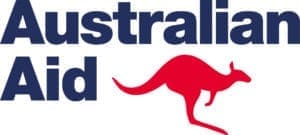

ACNC Registered
The ACNC Tick of Charity Registration (the Registered Charity Tick) aims to give reassurance to the public that the charity is transparent and accountable by highlighting its presence on the ACNC Charity Register.
Charities must meet ACNC governance standards. These standards set out a minimum standard on how charities should be governed, such as being accountable to members. Charities must also keep records that correctly document and explain their net wealth, performance, and operations. They also have ongoing obligations to the ACNC to continue to display the ACNC Tick.
More information can be found here.
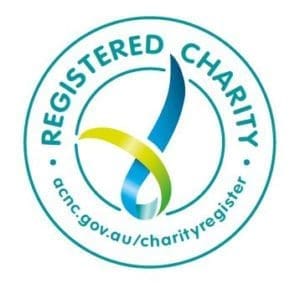
Independently Evaluated
ALWS is regularly and systematically monitored and evaluated by independent assessors.
Jan Cossar, an independent International Development Consultant, said the following of ALWS:
“Although a small NGO in Australia, ALWS is highly regarded in the NGO community. Its contribution to NGO and development work in Australia as well as to the broader LWF community is much bigger than its size. ALWS punches above its weight!
“One of the challenges when an organisation is considered so effective and doing such a good job with limited resources is a tendency to take on more and more work with the same level of human resources. There is a need for ALWS to have the resources to ensure the quality and quantity of work that they do, and I urge Lutheran supporters to assist as much as possible given ALWS’s great contribution to the aid and development sector.”
Efficient
We are committed to using your gifts as efficiently and effectively as possible.
Therefore, we aim to invest wisely in overheads to achieve maximum impact.
However, possible decreases in funding, maintaining standards, meeting additional compliance requirements, and staff care mean this rate can change.
Over the last 5 years, 84.6% of ALWS income has been used to help and educate people.
Effective
We link Relief, Rehabilitation and Development. Our work includes:
- Disaster preparedness within development work which is crucial to ensuring the eventual self-sustainability of individuals and communities. Environmental issues, gender justice, disability-inclusion, protection, and other thematic areas are considered integral parts of all actions undertaken.
- A Rights-Based Approach that recognises communities as rights-holders and agents of change in situations of human rights deprivations and violations. We empower people to claim their rights and develops the capacity of duty-bearers to meet their human rights obligations and to be held to account for their performance in this regard.
- Being part of a global partnership committed to ending all forms of poverty, fighting inequalities and tackling climate change and strategically partner with others to avoid duplicating and thereby wasting precious resources
- Using an integrated approach to development and humanitarian work. This means intentionally linking the design, delivery, and evaluation of programs across disciplines and sectors. We believe that this approach not only produces an amplified impact as it improves people’s lives in multiple ways, but also lowers costs and enhances systems, services, and products; thereby improving development efforts.
- Prioritising our support to the poor and vulnerable people with a specific focus on women, children, people with disabilities”.
Accountable
We are accountable to the Lutheran Church of Australia.
ALWS is governed by a Board of Directors appointed by the General Church Council and the District Church Councils. ALWS reports to the Church through General Church Council and Synods. This includes submission of Annual Report and Audited Financial Statements.
Governance & Staff
Board of Directors
Ms Jodie Hoff
Chair
BTeach, BEd, Grad DipED (Theology), MEdLeadership
Jodie is the Principal of LORDS (Lutheran Ormeau Rivers District
School) in Pimpama, Queensland. She has a passion for service-
learning and embedding it into school culture by curriculum, resources, support and partnerships - both local and global. Jodie has witnessed ALWS work in Cambodia, Kenya and Mozambique. She has served as director on Boards of Lutheran Education and Lutheran Youth in Queensland, and joined the ALWS Board in 2019.
Mr Peter Renner
Vice Chair
Peter is a retired bank executive with a 39-year career, with the last 15 years in Human Resources. Peter is currently the chair of two residential body corporate organisations. He has been a member of Ringwood Lutheran Church for the past 43 years, and is the chair of the parish, congregation and retirement village. Peter also chairs the LCA Victorian District subcommittee for audit, risk and finance. He has visited ALWS’ work in Indonesia. Peter joined the Board in 2017.
Ms Morgan Brookes
Board member
BA, BEd, GradCertBus
Morgan is the Wellbeing Director, and also a Senior Biology and Psychology teacher, at Cornerstone College, Mount Barker. She has been the leader of a school educational service trip to the Kalahari Desert, South Africa for several years. In 2013 she visited ALWS’ project in Indonesia and has served on the Board since 2010.
Mr Tom Brennen
Board member
MEd, GradCertEdLead, BMus(Hons), BEd(Sec), BA, MACEL
Thomas is the Principal of Cornerstone College in Mt Barker, South Australia and is also undertaking his PhD exploring issues of social justice and Lutheran theology. He previously worked as the Acting Director for the African Hope Learning Centre, an NGO providing education in Cairo, and as a Lecturer in Education and Theology at the Petrescue Bible Institute, also in Cairo. Thomas is a member at
Strathalbyn Lutheran Church. He joined the ALWS Board in 2020.
Mr Andrew Kotzur
Board member
BBus (Admin), MAICD
Andrew is the Managing Director of a family-owned engineering
and manufacturing group of companies. In his role, he works closely with farmers and businesses in the grains industry across Australia. Andrew is a member of Zion Lutheran Congregation at Walla where he currently serves as Chairperson. He is also Chairperson of the Murray Taskforce – Growing Regions of Welcome, which is a NSW Government program to resettle recent arrivals (including refugees) to Australia in regional areas. Andrew joined the ALWS Board in 2020.
Rev Mark Schultz
Board Member
BTh, Grad Dip Min
Mark is Lead Pastor of LifeWay Lutheran Church, a multisite and
multi-ethnic church in the NSW District. He is currently Chairman
of Directors of Australian Christian Resources (ACR) as well as Chair of the Vertical Villages Project, for the Together for Ryde Network. Mark has a passion for mission and discipleship and has led multiple mission teams in Thailand and now Cambodia where he witnessed the work of ALWS first-hand. Mark joined the Board in 2022.
Program Advisory Committee
Tom Brennan (Chair)
ALWS Board Member
MEd, GradCertEdLead, BMus(Hons), BEd(Sec), BA, MACEL
Mr Anthony Sell
Director Design and Learning at Seed Initiatives
MCouns, BA
Mr Geoff Robinson
Expert Disaster Risk Resilience, Senior Program Manager, Act For Peace
BAppSc
Finance, Audit and Risk Committee
Peter Renner (Chair)
ALWS Board Member
Jodie Hoff
ALWS Board Chairperson
BTeach, BEd, Grad DipED (Theology), MEdLeadership
Ron Asquith
Executive Director Lutheran Aged Care Albury
BComm, FCPA, GAICD
Michael Stolz
ALWS Executive Director
BEng (Aeronautical), EMBA (Complex Program Management), GAICD
Fundraising and Marketing Committee
Rev Mark Schultz (Chair)
ALWS Board Member
BTh, Grad Dip Min
Lorelei Baum
Stakeholder Engagement and Communication Strategist
BBus (Comms) FPRIA
Leo Orland
Retired
B. Theol., FFIA (Emeritas), CFRE (Retired)
Tony Smith
Independent Consultant
BEng (Electrical), Associate Diploma in Engineering (Electronics), Certified internal Auditor (Compliance)
Staff - Leadership Team
Mr Michael Stolz
Executive Director
BEng (Aeronautical), EMBA (Complex Program Management), GAICD
Michael is an experienced leader with a track record of building partnering relationships and growth. Michael has a program delivery track record over 25 years in transport, energy, defense and NFP. He has over 10 years experience as a Non Executive Director, including eight years on the National Board of the Lutheran Church of Australia and New Zealand (LCANZ), and two years on the Board of ALWS. Michael is a former management consultant and RAAF engineer. Michael commenced his appointment as Executive Director in September 2022.
Mrs Leah Odongo
Program Director
BAL, LLB, MBA Management
Leah joined ALWS in 2015 and is an experienced leader with 16 years of multi-faceted work experience in international aid and development. She is passionate about promoting and protecting human rights for all, and served as a Human Rights Lawyer for the Kenya National Commission for Human Rights. Leah worked in refugee camps in eastern Africa with Lutheran World Federation
for 8 years, and draws her inspiration from the life and teachings of Christ.
Mr Jonathan Krause
Community Action Manager
BA
Jonathan has 30+ years experience in fundraising, raising half a billion dollars for charitable works through 50+ aid agencies across Europe, Asia, the United States and Australia. Jonathan has provided strategic fundraising expertise and copywriting across all sectors – including international aid, cancer research, animal cruelty and domestic services. Clients include World Vision, the Salvation Army, Guide Dogs, RSPCA, CARE, Plan, cbm and Olivia Newton-John Cancer and Wellness Centre. Jonathan is the author of 8 books, and has served at ALWS for 17 years.
Mr Aaron Glover
Community Engagement Manager
MBA, BBus
Aaron is an experienced non-profit leader and manager with a track record of growing organisational impact and empowering teams. He has served in the Lutheran Church of Australia for over 15 years with expertise in youth engagement, school and church partnership and ecumenical collaboration. Aaron commenced his
appointment as Community Engagement Manager in February 2023.
Mr Stephen Kroker
Finance & Administration Manager
CA, BBus (Accounting), MAICD
Stephen is a chartered accountant who has worked in public practice and the non-for-profit sector. He has been involved in the Lutheran education sector for over 37 years and has served on numerous committees of the Lutheran Church for over 40 years. Stephen commenced his service with ALWS in April 2021 and has taken on the role of Finance and Admin manager.
FAQs
Our highest priority working in developing countries is always to put efficiency and effectiveness of development work first. We are unable to offer visits to project areas.
ALWS does not offer volunteer opportunities. We may, however, be able to assist through advice and re-directing to specific agencies.
Many generous people, recognising how blessed we are here in Australia and New Zealand, feel moved to share what they have with families in poor communities.
However, the mechanics of sending goods overseas generally make this an impractical and inefficient way to help people:
- shipping costs are very expensive
- customs duties can cost more than the value of goods themselves
- ALWS projects are often in remote regions, and transport costs can be high
- managing transport and distribution of goods can use a large amount of staff time, better applied elsewhere
- the proposed goods may not be appropriate for the local situation, and therefore may end up being discarded
- it can be difficult to make certain all members of a community benefit equally
- sourcing goods locally provides employment opportunities and benefits the local economy.
For these reasons, ALWS does not support sending gifts-in-kind overseas. Donations of money are by far the most practical, efficient and effective means of helping.
ALWS has been established by the Lutheran Church of Australia to meet human need, without any strings attached. This work takes us into places where there may not be local churches and involves us with people who may not be Christian. This gives you the wonderful opportunity to reflect God’s unconditional love to others, and display in actions Jesus’ love for us.
ALWS has been set up as a complementary body to the LCA’s International Mission, which has a mandate to spread the Gospel message. International Mission works primarily in partnership with overseas partner churches to strengthen and support their ministry.
ALWS and International Mission work together as an expression of the total ministry of the LCA to both proclaim and demonstrate the Gospel message to the world.
ALWS does not offer a child sponsorship program. A key reason is that our partners do not support this form of giving, as it’s not consistent with proven integrated and empowerment approaches to development. Another factor is the amount of resources required to operate such a program often means that a great deal of time and money is used up in running the program, rather than directly helping the people who need help.
However, we do offer:
1. The opportunity for Easy Regular Giving
Your donation supports the work of ALWS, including our overseas program that assists whole communities in their long-term development, in countries such as Cambodia, Nepal and South Sudan. You receive written updates twice a year on how your support is helping people around the world.
2. Gifts to specific projects
Although ALWS especially values gifts that are provided on an undesignated basis, donors are able to specify their gifts to particular projects with the ALWS Overseas Program. Currently, these projects are:
- Burundi
- Cambodia
- Djibouti
- Indonesia
- Kenya
- Nepal
- Papua New Guinea
- South Sudan
3. Farm Partnership in Burundi
This initiative involves being linked with a Farm Group in Burundi and creating lasting change. Find out more
It’s wonderful that you want to help others through ALWS. However, supporting only a specific activity can take up a lot of resources in terms of time and money relative to the size of the activity, and therefore it is not always the best or most efficient way to help. The following paragraphs may help to explain this.
60 years of experience has demonstrated that individual activities which don’t fit within an overall development program don’t achieve sustainable outcomes. That’s why we support integrated development.
Integrated development = all of the development activities work together. For example, rather than just a well being built, the project also makes sure that there is training in how to fix the pump if it breaks, training in good water and sanitation practices, and a road to get to the well! Just a well on its own isn’t so useful.
ALWS and our partners also want to ensure that all projects are carefully monitored and evaluated. Therefore, any specific activity requires this same high standard of monitoring and evaluation. This follow-up in terms of proposals and reports which must be written creates a great deal of work for program and project staff and means that time and resources, which are very stretched already, are perhaps not used as efficiently or effectively as they could be.
We understand that it’s easier for people, especially children, to visualise how they are helping others by having a specific activity. That’s why we’ve tried to put in place a number of ways for people to understand the help they are providing while at the same time, making sure we use your donations as effectively and efficiently as possible:
Our Gifts of Grace catalogues provide you with concrete examples of the kind of help you can provide to people in need through ALWS.
Our Farm Partnership initiative links a group/individual here in Australia with a Farm Group in Burundi.
Each year, we identify a number of specific activities which fit within our current programs and which you’re most welcome to support. In this way, we’re able to offer the link to specific support while at the same time making sure that specific activities don’t consume a disproportionate amount of resources and still fit within an overall development program. Contact us for further information.
We value very highly donations made to the overall work of ALWS, as this allows us to use the funds where they are most needed to help the most number of people possible. Of course, we are also greatly appreciative of any support for specific activities and understand the need for these. Because of the increase in resources required for managing specific activities, any contribution you or your group can make to the overall work of ALWS throughout the year would be greatly appreciated.
ALWS is accredited by the Australian Department of Foreign Affairs and Trade (DFAT), responsible for managing Australia’s aid program. To maintain accreditation, ALWS’s systems, policies and processes are rigorously reviewed by the Australian Government. ALWS receives support through the Australian NGO Cooperation Program (ANCP) for our programs in Burundi, Indonesia, Myanmar, Nepal, and Somalia.
Through the PNGAusPartnership, the Australian Government also supports the Church Partnership Program in PNG.
Through the Australian Humanitarian Partnership and the CAN DO Consortium, the Australian Government also supports our work in Bangladesh and Myanmar.
We are very grateful for the support we receive from the Australian Government.
ALWS acknowledges its role, not primarily as an implementing agency but as an organization that supports and adds value by leveraging wider change to increase our impact.
We do this through financial and technical support and work with other partners with whom we share common values and approaches to poverty injustice, recognising that we are part of a global partnership commitment to ending all forms of poverty and fighting inequalities.
In Australia, this partnership includes:
- Lutheran Church of Australia and New Zealand (departments such as the Office of the Bishop, LCA International Mission)
- Lutheran Education Australia
- Lutheran Lay People’s League
- Church Agencies Network, including CANDO – Church Agencies Network Disaster Operations
- National Council of Churches’ aid agency Act for Peace
- Australian Council for International Development
- Department of Foreign Affairs and Trade
Partners Overseas include:
- Lutheran World Federation – World Service
- Action by Churches Together (ACT) Alliance
- Evangelical Lutheran Church of Papua New Guinea
- Life With Dignity (LWD)
- Nommensen University in Indonesia
- RDRS in Bangladesh
- LWF Member churches
ALWS benefits from and contributes to the collaborative strengths and experiences of all our partnerships. The benefits of ALWS operating through partnerships are many and include:
- The implementation of effective aid and development programs by trusted and accountable organisations in-country
- Assurance of transparent and accountable financial systems for all projects
- The sharing of professional development opportunities and materials
- Access to a wide range of resources and expertise
- The shared use of resources to ensure value for money
